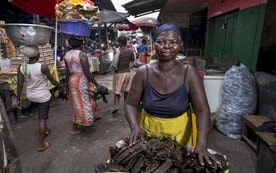The Recognition and Protection of Informal Traders in COVID-19 Laws: Lessons from Africa
This paper analyzes the COVID-19 laws of 41 Anglophone, Francophone and Lusophone African countries with an informal trading lens. It considers the implications of these laws for informal traders' continuity of work, measures to prevent the spread of COVID-19, and social dialogue and engagement with governments.
This paper analyzed COVID-19 laws of the following 41 African countries from March to October 2020:
- Anglophone Africa: Botswana, Eritrea, Eswatini, Gambia, Ghana, Kenya, Lesotho, Liberia, Malawi, Mauritius, Namibia, Nigeria, Seychelles, Sierra Leone, South Africa, South Sudan, Uganda, Zambia, Zimbabwe (19);
- Francophone Africa: Benin, Burkina Faso, Burundi, Cameroun, Central African Republic, Chad, Congo-Brazzaville, Democratic Republic of Congo, Djibouti, Equatorial Guinea, Gabon, Guinea, Ivory Coast, Madagascar, Mali, Niger, Rwanda, Senegal, Seychelles and Togo (20);
- Lusophone Africa: Angola, Mozambique (2).
View list of all: Research Reports

